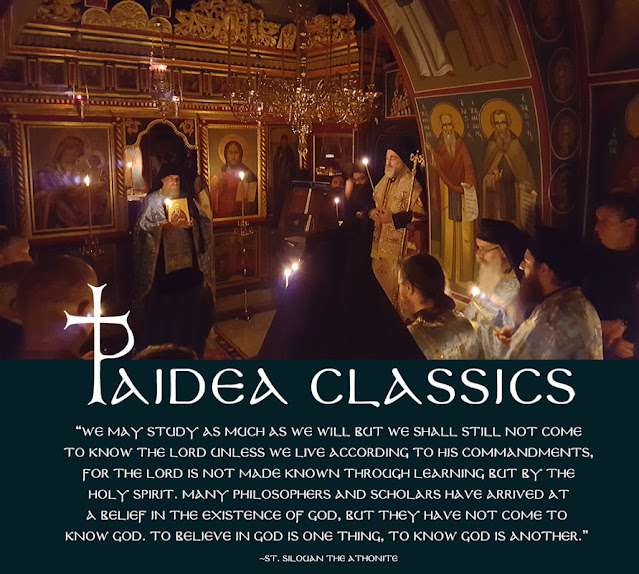Charlotte Mason Resources
If you would like to explore more how the
educational philosophies of Charlotte Mason fit into the Patristic wisdom of
the Orthodox Church, Elizabeth Davis has collected some presentations at Paidea Classics.
You can also download those slideshows as pdf versions.
Don’t have time to read a book about Charlotte
Mason’s educational theories, but could listen to a podcast while you fold
laundry or commute to work? Cindy Rollins has a new podcast, The New Mason Jar that has been
comforting to me, comforting in making me feel like yes, I can do this! Cindy
and various guests – mothers who’ve been doing this a while – talk about what education looks like played out in real life with real mothers and real kids.
Myths, Fairy Tales, and Church Fathers
The Church Fathers read myths? Actually, yes, many of them did. And they saw images of Christ embedded in stories. Justin Martyr calls these
images “seeds of truth.” If this idea interests you, you might like to listen
to Why Read
Pagan Myths where I first heard this
phrase - seeds of truth.
This article about St. Justin the Philosopher and Martyr from Orthodox Christian Fellowship articulates some of
these ideas I have been trying to grapple with about creation, patterns, and
Christ the Logos. It also links to the full text of St. Justin’s writing in
which he mentions seeds of truth.
The
Literary Life Podcast is free and if you scroll through the archives you
might be delighted to find a discussion on a short story or Shakespeare Play you plan to read
with your children or an idea you
would like to think more about.
Not-Free Resources
(But worthwhile “Professional
Development”)
I am currently taking a class from the House of
Human Letters on How to Read Fairytales
and it is very helpful in learning how to see the images! It is the reason I
understood the thorns, the lips, the life in Sleeping Beauty, and most of my
thoughts in this series came from this class combined with my spiritual reading. It
turns out that most people in the Middle Ages knew what all the symbols were
and what they meant, but we’ve lost quite a bit of that now. House of
Humane Letters offers lots of “live or
later” courses and webinars.
From the Archives
Sunday of Orthodoxy is coming up this weekend. Here
are some coloring pages and handwriting sheets to help your kids become more
aware of this first Sunday of Great Lent.
For a look at real, live, not-perfect crafting
and connections with little ones, here’s a science activity: STREAM - Creation and Chocolate. I know, I know: in this activity I helped them make
the connections, after I told you not to make the connections for them. What
can I say, sometimes an artsy gal is called to teach science and do a craft. In
that case, one just makes do.
Here are the other posts about Science of
Relations:
1. Science
of Relations: Delightful Connections
2. Science
of Relations: For all of Us (not just homeschooling mamas)



No comments:
Post a Comment